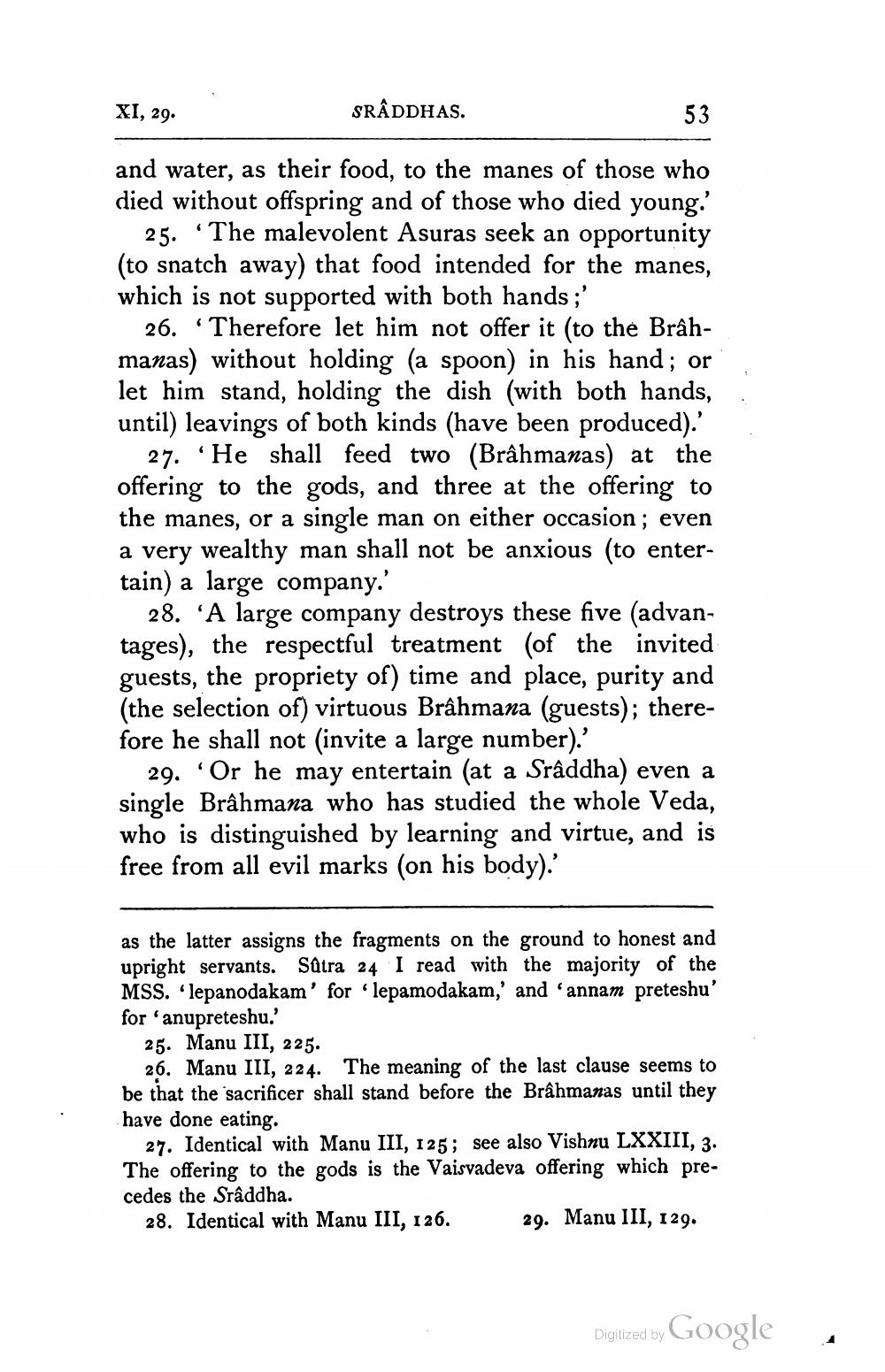________________
XI, 29.
SRÂDDHAS.
53
and water, as their food, to the manes of those who died without offspring and of those who died young.'
25. *The malevolent Asuras seek an opportunity (to snatch away) that food intended for the manes, which is not supported with both hands ;'
26. Therefore let him not offer it (to the Brâhmanas) without holding (a spoon) in his hand; or let him stand, holding the dish (with both hands, until) leavings of both kinds (have been produced).'
27. 'He shall feed two (Brâhmanas) at the offering to the gods, and three at the offering to the manes, or a single man on either occasion; even a very wealthy man shall not be anxious (to entertain) a large company.'
28. 'A large company destroys these five (advantages), the respectful treatment (of the invited guests, the propriety of) time and place, purity and (the selection of) virtuous Brâhmana (guests); therefore he shall not (invite a large number).'
29. Or he may entertain (at a Sraddha) even a single Brâhmana who has studied the whole Veda, who is distinguished by learning and virtue, and is free from all evil marks (on his body).'
as the latter assigns the fragments on the ground to honest and upright servants. Sätra 24 I read with the majority of the MSS. lepanodakam' for lepamodakam,' and 'annam preteshu' for 'anupreteshu.'
25. Manu III, 225.
26. Manu III, 224. The meaning of the last clause seems to be that the sacrificer shall stand before the Brâhmanas until they have done eating.
27. Identical with Manu III, 125; see also Vishnu LXXIII, 3. The offering to the gods is the Vaisvadeva offering which precedes the Sraddha.
28. Identical with Manu III, 126. 29. Manu III, 129.
Digitized by Google




